QS.com Asian University Rankings 2009: The top Asian universities in Arts & Humanities
QS.com Asian University Rankings 2009
Top 200 Universities
QS.com Asian University Rankings 2009
Arts & Humanities
The top Asian universities in Arts & Humanities
| 2009 rank | School Name | Country | Arts Score |
|---|---|---|---|
|
| |||
| 1 | University of TOKYO | Japan | 100.0 |
| 2 | PEKING University | China | 99.0 |
| 3 | KYOTO University | Japan | 90.7 |
| 4 | National University of Singapore (NUS) | Singapore | 88.2 |
| 5 | University of HONG KONG | Hong Kong | 77.9 |
| 6 | SEOUL National University | Korea, South | 75.0 |
| 7 | WASEDA University | Japan | 68.9 |
| 8 | TSINGHUA University | China | 66.3 |
| 9 | FUDAN University | China | 62.0 |
| 10 | CHULALONGKORN University | Thailand | 59.2 |
| 11 | The CHINESE University of Hong Kong | Hong Kong | 57.2 |
| 12 | University of the PHILIPPINES | Philippines | 54.6 |
| 13 | National TAIWAN University | Taiwan | 54.5 |
| 14 | Universitas GADJAH MADA | Indonesia | 51.9 |
| 15 | University of INDONESIA | Indonesia | 51.4 |
| 16 | JAWAHARLAL NEHRU University | India | 50.7 |
| 17 | NANJING University | China | 49.6 |
| 18 | YONSEI University | Korea, South | 49.5 |
| 19 | Ateneo de MANILA University | Philippines | 48.9 |
| 20 | KEIO University | Japan | 47.5 |
| 21 | Nanyang Technological University (NTU) | Singapore | 46.2 |
| 22 | OSAKA University | Japan | 46.1 |
| 23 | University of DELHI | India | 45.4 |
| 24 | KOREA University | Korea, South | 41.7 |
| 25 | CITY University of Hong Kong | Hong Kong | 40.9 |
| 26 | Universiti Malaya (UM) | Malaysia | 38.8 |
| 27 | SOGANG University | Korea, South | 36.7 |
| 28 | THAMMASAT University | Thailand | 35.4 |
| 29 | University of CALCUTTA | India | 35.3 |
| 30 | KYUSHU University | Japan | 35.2 |
| 31 | ZHEJIANG University | China | 35.1 |
| 32 | HITOTSUBASHI University | Japan | 34.8 |
| 33 | EWHA WOMANS University | Korea, South | 34.3 |
| 34 | SHANGHAI JIAO TONG University | China | 33.5 |
| 35 | Universiti Kebangsaan Malaysia (UKM) | Malaysia | 33.3 |
| 36 | University of TSUKUBA | Japan | 31.3 |
| 37 | The HONG KONG Polytechnic University | Hong Kong | 31.0 |
| 38 | RITSUMEIKAN University | Japan | 30.6 |
| 39 | TOKYO Institute of Technology | Japan | 29.6 |
| 40 | National TSING HUA University | Taiwan | 29.2 |
| 41= | University of Science and Technology of ... | China | 28.7 |
| 41= | Indian Institute of Technology Bombay (I... | India | 28.7 |
| 41= | TOHOKU University | Japan | 28.7 |
| 44 | DE LA SALLE University | Philippines | 28.4 |
| 45= | MAHIDOL University | Thailand | 28.1 |
| 45= | KOBE University | Japan | 28.1 |
| 47 | HONG KONG University of Science and Tech... | Hong Kong | 27.9 |
| 48= | HIROSHIMA University | Japan | 27.7 |
| 48= | DOSHISHA University | Japan | 27.7 |
| 50 | BANDUNG Institute of Technology (ITB) | Indonesia | 27.6 |
| 51 | KAIST - Korea Advanced Institute of Scie... | Korea, South | 27.4 |
| 52 | National CHENGCHI University | Taiwan | 27.2 |
| 53 | NAGOYA University | Japan | 26.6 |
| 54 | CHIANG MAI University | Thailand | 26.5 |
| 55= | TONGJI University | China | 25.6 |
| 55= | University of SANTO TOMAS | Philippines | 25.6 |
| 57 | University of PUNE | India | 25.2 |
| 58 | Universiti Putra Malaysia (UPM) | Malaysia | 24.9 |
| 59 | National CHENG KUNG University | Taiwan | 24.8 |
| 60 | HOKKAIDO University | Japan | 24.2 |
| 61 | Universiti Sains Malaysia (USM) | Malaysia | 24.1 |
| 62 | HANYANG University | Korea, South | 24.0 |
| 63 | University of MUMBAI | India | 23.7 |
| 64 | KYUNG HEE University | Korea, South | 23.5 |
| 65 | TOKAI University | Japan | 22.6 |
| 66 | CHIBA University | Japan | 22.4 |
| 67 | FU JEN Catholic University | Taiwan | 21.8 |
| 68 | TIANJIN University | China | 21.1 |
| 69 | National TAIWAN NORMAL University | Taiwan | 21.0 |
| 70 | SOUTHEAST University | China | 19.7 |
| 71 | SHANDONG University | China | 19.5 |
| 72= | INHA University | Korea, South | 19.4 |
| 72= | Indian Institute of Technology Kanpur (I... | India | 19.4 |
| 72= | Indian Institute of Technology Madras (I... | India | 19.4 |
| 75 | TOKYO Metropolitan University | Japan | 19.3 |
| 76 | National SUN YAT-SEN University | Taiwan | 18.7 |
| 77 | PUSAN National University | Korea, South | 18.6 |
| 78 | YOKOHAMA NATIONAL University | Japan | 18.3 |
| 79 | OCHANOMIZU University | Japan | 17.7 |
| 80 | XI'AN JIAOTONG University | China | 16.7 |
| 81= | CHUNGNAM National University | Korea, South | 16.6 |
| 81= | AOYAMA GAKUIN University | Japan | 16.6 |
| 83 | National CENTRAL University | Taiwan | 15.5 |
| 84 | SUNGKYUNKWAN University | Korea, South | 15.4 |
| 85 | JILIN University | China | 15.1 |
| 86= | Pohang University of Science and Technol... | Korea, South | 14.8 |
| 86= | BOGOR Agricultural University | Indonesia | 14.8 |
| 88 | National CHIAO TUNG University | Taiwan | 14.6 |
| 89 | CHONBUK National University | Korea, South | 14.2 |
| 90 | Universiti Teknologi Malaysia (UTM) | Malaysia | 13.7 |
| 91 | PRINCE OF SONGKLA University | Thailand | 13.4 |
| 92 | AIRLANGGA University | Indonesia | 13.3 |
| 93 | KHON KAEN University | Thailand | 13.1 |
| 94 | CHONNAM National University | Korea, South | 12.6 |
| 95 | National TAIWAN University of Science an... | Taiwan | 12.5 |
| 96 | DIPONEGORO University | Indonesia | 11.4 |
| 97 | KUMAMOTO University | Japan | 11.3 |
| 98= | Indian Institute of Technology Delhi (II... | India | 11.0 |
| 98= | NAGASAKI University | Japan | 11.0 |
| 100= | OSAKA CITY University | Japan | 10.7 |
| 100= | KASETSART University | Thailand | 10.7 |
Source: QS Quacquarelli Symonds (www.topuniversities.com). With permission.
Copyright © 2004-2008 QS Quacquarelli Symonds Ltd.
***
Copyright © 2004-2008 QS Quacquarelli Symonds Ltd.
***

Only 4 RP schools among Top 200 Asian universities
KATRINA ELAINE ALBA and KATRINA LOUISE FRANCISCO, GMANews.TV
Article posted May 12, 2009 - 09:50 PM
Article posted May 12, 2009 - 09:50 PM
MANILA, Philippines - Four Philippine schools have made it to the Top 200 Asian Universities list of the Quacquarelli Symonds Ltd. (QS.com) for 2009.
Leading the Philippine schools was the University of the Philippines (UP), which shared No. 63 spot with Indian Institute of Technology Roorkee of India, Osaka City University of Japan and Universitas Gadjah Mada of Indonesia.
De La Salle University (DLSU) was 76th, Ateneo De Manila University (ADMU) was 84th, while the University of Santo Tomas (UST) shared 144th spot with Nanjing Agricultural University of China.
Japan had the most number of schools in the list at 58, including 10 in the top 20 ranks.
South Korea was next with 46 universities, of which three were in the top 20, while China had 39, including two in the top 20.
Taiwan had 15; India, 11; Thailand and Indonesia had 8 each; and Malaysia, 6.
Hong Kong also had only six, but four were in the top 20, three of which occupied the 1st, 2nd and 4th slots.
Singapore had only two universities in the list, but both were in the top 20 slots.
Occupying the Top 10 slots were:
1. University of Hong Kong;
2. Chinese University of Hong Kong;
3. University of Tokyo (Japan);
4. Hong Kong University of Science and Technology (HK);
5. Kyoto University (Japan);
6. Osaka University (Japan);
7. KAIST - Korea Advanced Institute of Science and Technology (South Korea);
8. Seoul National University, South Korea;
9. Tokyo Institute of Technology (Japan);
10. National University of Singapore (NUS) Singapore and Peking University (China).
For the complete list, check http://www.qs.com.
Results of the first QS.com survey was officially released on Tuesday.
Managing Director Nunzio Quacquarelli said the results of the Asian University Rankings focus on regionally relevant measures of excellence, with the top performing universities distinguished not only by quality, but also by high productivity of research, compared to their regional peers.
While the Philippine universities were way below the rankings, QS Managing Director Nunzio Quacquarelli had this to say: “Philippines universities have performed well, with high recruiter review scores. These results make study in the Philippines an attractive option for international students studying abroad,"
Quacquarelli said QS based the first ever top Asian universities list on regionally relevant measures of excellence, selecting schools noted not only for quality, but also for high research productivity compared to the institution’s regional peers.
The ranking of Asian universities used to be done yearly by Asiaweek, a Hong Kong-based English newsmagazine, which folded up in December 2001 due to a downturn in advertising revenues.
Subject rankings
When it came to the 2009 Asian university subject rankings, University of the Philippines (UP) rose to the 12th spot under Arts and Humanities, while ADMU, DSLU, and UST got the 19th, 44th, and 55th slots respectively.
Under Life Sciences and Biomedicine, UP was 47th, ADMU was 52nd, DSLU was 79th, and UST was 85th.
The Social Sciences list placed UP as 22nd, ADMU as 28th, DSLU as 51st, and UST as 75th.
In subjects under Information Technology & Engineering, UP ranked 63rd, ADMU was 64th, and DSLU was 79th.
Under Natural Sciences, ADMU took the 24th spot, UP got the 32nd, UST got the 94th, while DSLU placed 97th.
The THE-QS 2008 world’s top 500 universities rankings had raised eyebrows when ADMU overran other Philippine schools in the top 500 list by rising from somewhere between 401st and 500th in 2007 to 254th, edging out UP which ranked 398th in 2007 and fell to 276th the next year.
DLSU and UST ranked 415th and 470th respectively.
UP officials earlier doubted the survey’s credibility, since the organizers refused to disclose where it acquired the data used, thus making the methodology “problematic."
Officials also revealed the “business side" of the survey where QS sold its various services to help universities improve rankings.
On the other hand, the Commission on Higher Education (CHED) refused to comment on the rankings, pointing out that Chairman Emmanuel Angeles, who also presides over the UP Board of Regents, was out of the country.
QS research chief Ben Sowter said “the advantage of regional rankings is in the richer picture we can create when comparing universities at a regional rather than global level, through the inclusion of additional factors."
Sowter added that the shift to a regional focus proved to be significant, “The position of institutions in Hong Kong, Japan and Singapore was to be expected, but the stronger performance of South Korean institutions in contrast to the world rankings suggests a strength known in the region that has yet to be fully acknowledged globally."
QS.com, which conducted the Times Higher Education-QS University Rankings, is the world’s leading information specialist in the higher education sector. – GMANews.TV
Leading the Philippine schools was the University of the Philippines (UP), which shared No. 63 spot with Indian Institute of Technology Roorkee of India, Osaka City University of Japan and Universitas Gadjah Mada of Indonesia.
De La Salle University (DLSU) was 76th, Ateneo De Manila University (ADMU) was 84th, while the University of Santo Tomas (UST) shared 144th spot with Nanjing Agricultural University of China.
Japan had the most number of schools in the list at 58, including 10 in the top 20 ranks.
South Korea was next with 46 universities, of which three were in the top 20, while China had 39, including two in the top 20.
Taiwan had 15; India, 11; Thailand and Indonesia had 8 each; and Malaysia, 6.
Hong Kong also had only six, but four were in the top 20, three of which occupied the 1st, 2nd and 4th slots.
Singapore had only two universities in the list, but both were in the top 20 slots.
Occupying the Top 10 slots were:
1. University of Hong Kong;
2. Chinese University of Hong Kong;
3. University of Tokyo (Japan);
4. Hong Kong University of Science and Technology (HK);
5. Kyoto University (Japan);
6. Osaka University (Japan);
7. KAIST - Korea Advanced Institute of Science and Technology (South Korea);
8. Seoul National University, South Korea;
9. Tokyo Institute of Technology (Japan);
10. National University of Singapore (NUS) Singapore and Peking University (China).
For the complete list, check http://www.qs.com.
Results of the first QS.com survey was officially released on Tuesday.
Managing Director Nunzio Quacquarelli said the results of the Asian University Rankings focus on regionally relevant measures of excellence, with the top performing universities distinguished not only by quality, but also by high productivity of research, compared to their regional peers.
While the Philippine universities were way below the rankings, QS Managing Director Nunzio Quacquarelli had this to say: “Philippines universities have performed well, with high recruiter review scores. These results make study in the Philippines an attractive option for international students studying abroad,"
Quacquarelli said QS based the first ever top Asian universities list on regionally relevant measures of excellence, selecting schools noted not only for quality, but also for high research productivity compared to the institution’s regional peers.
The ranking of Asian universities used to be done yearly by Asiaweek, a Hong Kong-based English newsmagazine, which folded up in December 2001 due to a downturn in advertising revenues.
Subject rankings
When it came to the 2009 Asian university subject rankings, University of the Philippines (UP) rose to the 12th spot under Arts and Humanities, while ADMU, DSLU, and UST got the 19th, 44th, and 55th slots respectively.
Under Life Sciences and Biomedicine, UP was 47th, ADMU was 52nd, DSLU was 79th, and UST was 85th.
The Social Sciences list placed UP as 22nd, ADMU as 28th, DSLU as 51st, and UST as 75th.
In subjects under Information Technology & Engineering, UP ranked 63rd, ADMU was 64th, and DSLU was 79th.
Under Natural Sciences, ADMU took the 24th spot, UP got the 32nd, UST got the 94th, while DSLU placed 97th.
The THE-QS 2008 world’s top 500 universities rankings had raised eyebrows when ADMU overran other Philippine schools in the top 500 list by rising from somewhere between 401st and 500th in 2007 to 254th, edging out UP which ranked 398th in 2007 and fell to 276th the next year.
DLSU and UST ranked 415th and 470th respectively.
UP officials earlier doubted the survey’s credibility, since the organizers refused to disclose where it acquired the data used, thus making the methodology “problematic."
Officials also revealed the “business side" of the survey where QS sold its various services to help universities improve rankings.
On the other hand, the Commission on Higher Education (CHED) refused to comment on the rankings, pointing out that Chairman Emmanuel Angeles, who also presides over the UP Board of Regents, was out of the country.
QS research chief Ben Sowter said “the advantage of regional rankings is in the richer picture we can create when comparing universities at a regional rather than global level, through the inclusion of additional factors."
Sowter added that the shift to a regional focus proved to be significant, “The position of institutions in Hong Kong, Japan and Singapore was to be expected, but the stronger performance of South Korean institutions in contrast to the world rankings suggests a strength known in the region that has yet to be fully acknowledged globally."
QS.com, which conducted the Times Higher Education-QS University Rankings, is the world’s leading information specialist in the higher education sector. – GMANews.TV
All Rights Reserved. 2006 © GMA Network Inc.
















































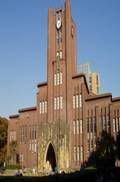


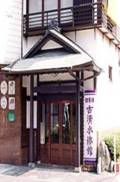




















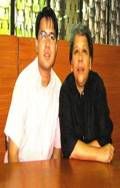

































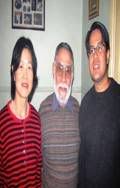





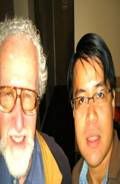



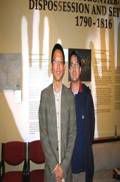


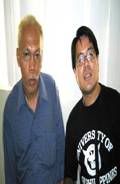
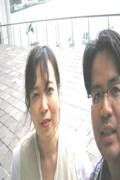
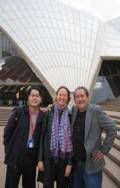












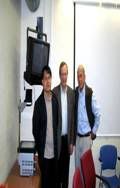



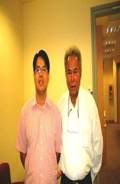































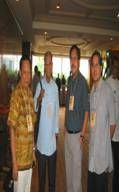
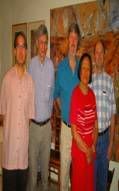


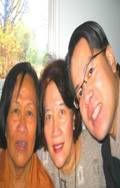
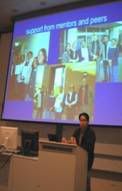







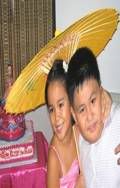









0 Comments:
Post a Comment
<< Home